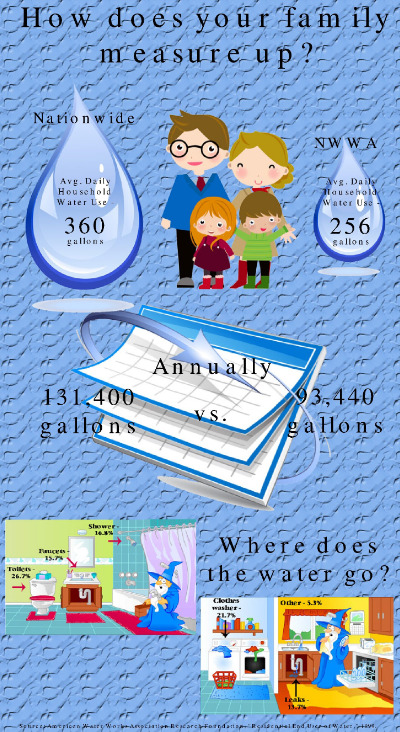
VOLUNTARY WATER RESTRICTIONS REMAIN IN EFFECT
NOVEMBER, 2024
Although we have received some modest rainfall recently, the need to conserve water in our area continues.
Our rainfall this year to date remains many inches below our normal levels, and we have been asked by the PaDEP and our colleagues at the Delaware River Basin Commission to strongly encourage a voluntary (if not mandatory) cutback in water usage by all retail and wholesale customers.
Our goal is a 10-15% reduction in water usage.
Please review the water conservation information found on this website.
Water Conservation is not only wise, it will save you money!
You may wonder why you hear so much about conservation since most of the surface of the earth is covered with water. That’s because even though 70-80% of the earth’s surface is covered with water, less than 1% of that can be made into drinking water.
And the water cycle keeps the supply of water on earth constant. Water from oceans, lakes, rivers, ponds, puddles and all other surfaces evaporates to become clouds. The clouds then make rain, sleet or snow that falls to earth to make rivers and streams. Also, some of that water seeps into the ground to form groundwater. Before this water flows into the oceans starting the water cycle all over again, some of it is taken for drinking water which in turn will be released into the wastewater system.
Therefore, since the earth’s supply of water is constant and not increasing, we have to protect the water we do have and use it wisely. Water is a valuable commodity and future prosperity depends on an adequate supply of water. This section of the website contains many useful tips for protecting our most precious resource. Click here to view tips for conserving water. To see specific information about detecting leaks, click here.
Click here to visit other websites for more conservation and drought information.
Have you wondered how your water use compares to that of your neighbor’s? Check out this infographic which compares the water usage of the average NWWA household with that of the average household nationwide.
